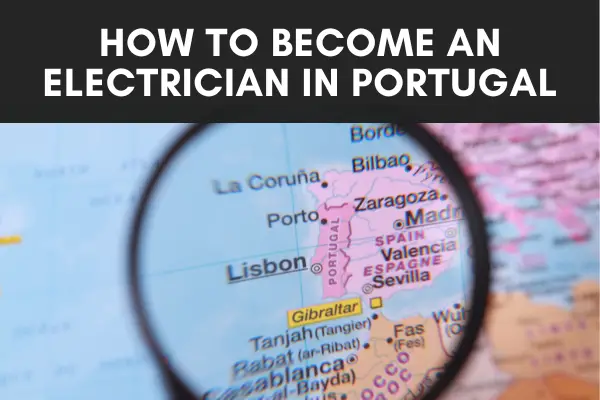Are you tempted by Portugal’s cliffside beaches, port wine, and historic architecture? If you’re planning a move and want to transfer over your credentials or begin a new career as an electrician in Portugal, you’re in the right place.
To become an electrician in Portugal, you’ll need to become a legal resident, translate any foreign certifications, and apply for recognition as a qualified technician with the Directorate-General for Energy and Geology (DGEG) in your area.
We’ll break down each step in this article so to better prepare you for your big move.
Becoming an Electrician in Portugal
Before you start an electrical empire in a new country, you’ll need to get through a few bureaucratic processes. Speaking Portuguese is going to be a big plus during this process, but if you’re still learning, consider hiring a translator or bilingual attorney to help.
- Become a Resident
You’ll need the legal right to work in Portugal as an electrician. If you have EU citizenship elsewhere, you’ll be able to work in Portugal easily, applying for a Residence Certificate after three months of being in the country.
If you’re coming from a non-EU country, you’ll need to apply for a visa at the Portuguese embassy in your country, and then apply for a work permit once in Portugal. This site has some general information on visas, although you should check with your local embassy for the most up-to-date information.
- Translate Your Certifications
Before leaving your home country, gather any licenses, degrees, or certifications you have that attest to your electrical knowledge.
If your country is a part of the Apostille Convention, you can get your documents apostilled in your home country, making them legal in Portugal.
The apostille process varies by country and, in the U.S., by state. Usually, you’ll have to mail in or hand in your documents, pay a fee, and receive the apostille from the province or state the document is from.
Once your documents are apostilled, or “legalized” for Portugal, you’ll need to find an English-to-Portuguese translator. This person should be registered as a legal translator in Portugal. They’ll translate your documents – including any apostilles – and stamp them to make them official.
After this process, your documents will be recognized in Portugal. This doesn’t mean you won’t have to undergo any additional training, however, as Portugal’s electric system could vary greatly from that of your home country.
- Apply for Recognition as an Electrician
The DGED registers and recognizes private electrical technicians in Portugal. You’ll need to document your academic qualifications, submit a copy of your ID and Portuguese tax number (given once you’re a resident), and complete an application.
The application is called minutas, and it can be downloaded in Word format from the DGEG website. There are two types of applicants: execução and/or exploração. The former is similar to master electricians in the states and the latter to journeyman electricians.
As a private master (execução) electrician, you’ll need to hold civil liability insurance. Journeyman electricians (exploraçãos) will need some of their work to be supervised and approved by a master (execução) electrician.

